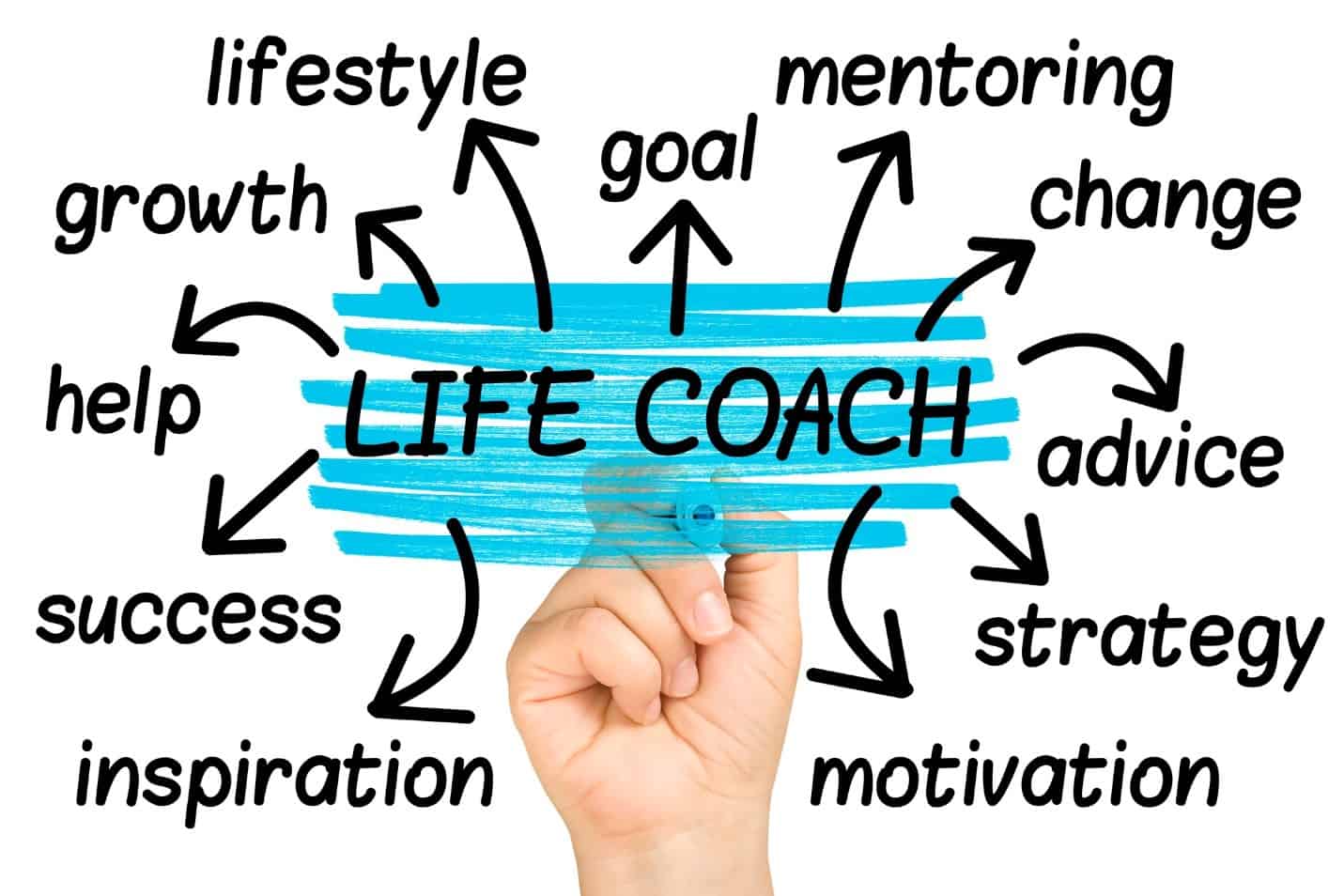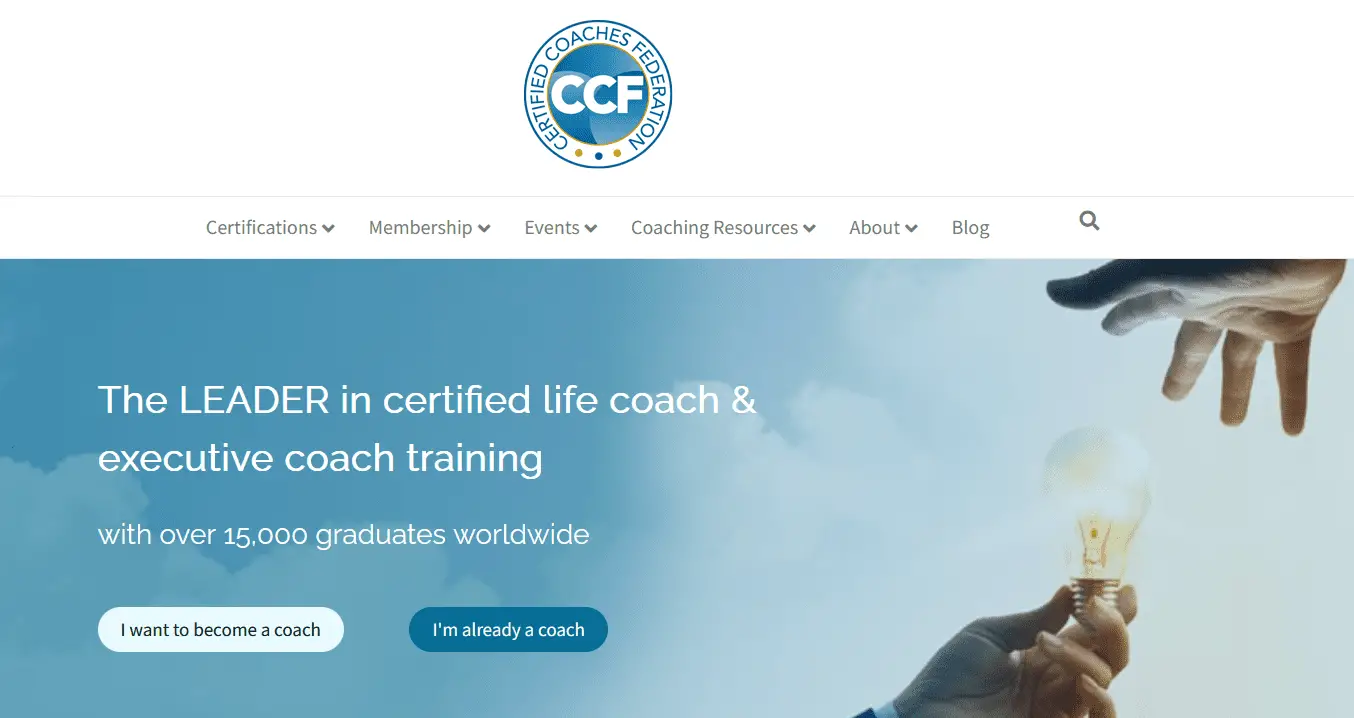Life coaches provide motivational guidance to their clients and assist them in overcoming personal and professional troubles. Their clients include people from all walks of life, such as students, parents, trauma survivors, and business executives.
How to Become a Life Coach in Canada?
You do not need a license to become a life coach in Canada. However, many coaches obtain certification from training institutes. Life coaches in Canada advise their clients and suggest practical strategies for resolving their problems.

Generally, aspiring life coaches in Canada get formal training to make their mark in the profession. Some also opt for certifications to boost the credibility and reliability of their skillsets and services. The salary of a life coach depends upon the years of experience and work location.
Becoming a life coach might be the perfect fit. As a life coach, you can help others reach their goals, create meaningful change, and build healthier relationships. While there is no formal licensing requirement to become a life coach in Canada, obtaining certification from a recognized training institute can be beneficial. In this article, we’ll learn the steps to becoming a life coach in Canada and offer some tips on getting started.
Life Coach Certifications in Canada
Generally, you don’t need a license to work as a life coach in Canada. However, most life coaches prefer to get a certification from a renowned training institute. To receive a certificate, you must complete the training provided by the respective organization. Most of the courses mentioned above include relevant certifications.

For instance, CCF offers several certifications, such as Coach Practitioner, Master Coach Practitioner, In-house Coach, Group Coach, and Advanced Coach Practitioner. You get the certificate after completing the corresponding training course.
Likewise, Rhodes Wellness College, an internationally recognized coach training institute, offers a program for ICA (International Coaching Association) certification. This program is formulated for both experienced and new life coaches.
Getting a certification adds credibility to your work, making your clients independent and assisting you in acquiring a job.
The first step toward becoming a life coach is gaining knowledge of the profession. To do this, you’ll take courses or undertake training from an accredited program on topics such as coaching theory, adult development, communication skills, and ethics.
Once you learn about the practice of coaching theory and techniques, develop your business plan. This involves figuring out which niche market you want to specialize in (such as health & wellness coaching), determining your target clientele (such as young adults or corporate executives), setting your rates, and establishing yourself within the community by writing articles or attending speaking engagements. It may also be helpful to join industry groups such as The International Coach Federation (ICF) or Canadian Consulting Professionals Network, which provides access to networking events, conferences, webinars, and other resources that can help further your coaching career.
When starting as a life coach in Canada, it is essential to understand the legal aspects involved before beginning any work with clients and ensure that all paperwork is filled out correctly. For example, signing contracts between yourself and clients before starting work will provide clear expectations are outlined, not just regarding payment but also client responsibilities such as completing tasks outside sessions, etc. Liability insurance is also advised when embarking on any form of private practice business venture, such as coaching, especially if there are plans to travel with clients outside the office!
Marketing properly is essential for success as a base level for potential clients. So, familiarizing yourself with social media platforms like Twitter or Facebook and developing an up-to-date website can be very effective tools for helping grow your business. Additionally, potential clients may find value in seeing reviews from former clients who were able to make positive changes through working with you, which can provide trustworthiness when building relationships with new ones!
Finally, once you have established yourself within the industry, you should maintain good practices, so continuing education-related courses or attending conferences/workshops relevant to the field should be considered part of maintaining best practice standards while keeping current trends & research at the forefront of mind!
In summary, becoming a certified life coach in Canada is complicated. However, many recommend completing accredited programs/courses before jumping into private practice; it is essential to understand legal obligations when dealing with clients and to promote oneself effectively via various mediums if one hopes to have a successful career!
Life coach salary in Canada
The average life coach salary in Canada in 2022 was around $46,000. The starting salary for beginner life coaches is about $25K per year, while most experienced workers make up to $75K per year.
Life coaching is a rapidly growing field in Canada that allows individuals to gain a higher salary and help others reach their goals. As the dethere is for life coachgrowsrow, so does the money they can earn. In 2022, the average salary of a Canadian life coach was approximately $46,000 per year, with beginner life coaches earning an average of around $ 25K annually and experienced coaches making up to $75K.
The key to earning a higher salary as a life coach is to build trust and reputation with clients. Clients will be more likely to invest in your services if they know you have certifications and experience in this area. Additionally, investing time in continuing education can significantly impact increasing salaries for life coaches. Knowing specific topics, such as mental health or relationships, can help clients feel more comfortable trusting your advice, leading to tremendous success for both parties.
To become certified as a life coach in Canada, individuals must complete training courses offered by organizations such as the International Coaching Federation (ICF). In addition to meeting these courses, potential life coaches must also develop skills related to communication, active listening, problem-solving, and empathy. These skills are crucial when building relationships with clients looking for guidance during their journey toward achieving their goals.
While becoming a licensed life coach requires patience and dedication, it can be a good career path with room for growth and higher earnings. With the right approach and training, those interested in becoming a Canadian-certified life coach will find many opportunities to empower others while being compensated well financially, too!
Glance through the detailed information regarding the profession of a life coach, training, and skills required:
Role of a Life Coach
A life coach is like a support system for individuals going through rough patches. These people can either cope with sudden changes in life or face career difficulties or personal problems. In these scenarios, the life coach helps them figure out their priorities, clarify goals, work through obstacles, and give a direction for fulfilling their aspirations.

Life’s challenges can weigh down a person, leading to indecisiveness about how to move forward. So, people seek help from a life coach who will help them choose the right path forward. Life coaches may work with a single person or a group of people.
The job of a life coach is unlike that of a therapist or counselor. A therapist usually advises the client by examining his past and reaching the root cause to resolve his concerns. However, a life coach focuses on the current situation and its consequences. A life coach revolves around the notion that people can decide upon the best solution for their problems with adequate support and proper guidance.
A life coach varies according to the kind of client and their needs. While one client requires the life coach to act as an emotional anchor during his transformation, the other may require the life ccoach’coach’snceto rearrange his organization. In every case, a life ccoach’coach’sionis to direct the client toward an optimal solution.
Life coaches do not only advise their clients but suggest practical strategies to resolve the issues. For example, a client in the management field may need help enhancing communication with his team. Similarly, a homemaker may want to know how to identify her skills and talents to rejoin the workforce.
A life coach holds the first meeting with a client to understand his desired objectives. Then, the life coach prepares a customized strategy plan to mentor the client. For example, a life coach can help a fresh college graduate make a career plan, which involves creating a resume, applying for suitable jobs, and building a professional profile on job websites like LinkedIn. Similarly, these coaches can show clients how to prepare for interviews or hone presentation skills.
Life coaches formulate their techniques in many different ways. While some clients have face-to-face sessions with the life coach, others talk over the phone or online teleconferencing tools such as Hangouts, Skype, etc. Likewise, some people require very few or short sessions, while others need sessions for several months and years.
At one time, sessions usually last from 30-90 minutes. The clients correspond with the life coach over email or phone in between these sessions. The workloads of life coaches differ as per the format of their work. Some life coaches are employed in institutions or companies, while others work independently. For instance, an organization may hire a life coach to help its staff balance personal and professional lives or tackle job stress. Similarly, higher education institutions can avail of a life ccoach’coach’scesto guide students in making action plans for career goals.
The institute-related life coaches generally meet a dozen clients per week. Further, life coaches can get clients through the word of mouth of other clients or counselor referrals.
Categories of Life Coaches
Most life coaches have specializations in a particular sphere of career or personal coaching. Some of the common categories of life coaches are:
- Life Balance Coach
Life balance coaches attend to clients who need help finding time for their families amidst busy work schedules.
- Relationship Coach
Relationship coaches help individuals searching for love, have constant quarrels with their partner, or going through the pain of a recent divorce.
- Health Coach
Health coaches support people with weight issues due to some terminal or chronic health problems.
- Personal Finance Coach
Personal finance coaches counsel people on how to get through financial troubles like bankruptcy, credit card debt, etc. They also help people budget for tuition, buy a home, etc.
- Small Business Coach
Small business coaches guide people who wish to start a new trade or business owners facing economic losses or market transitions.
- Executive Coach
Executive coaches mainly deal with corporate executives who seek advice in making plans for promotions, career changes, business decisions, or looking for other opportunities in their job sector.
Training in Life Coaching
Several international and Canadian life coaching training companies extend online and onsite courses. For example, CCF (Certified Coaches Federation), an international coaching organization, provides a certified live system for life coaching practitioners in Toronto, Vancouver, London, Kingston, Calgary, Sudbury, and Montreal. The cost of the program ranges between 900 – 2000 dollars. It is a two-day course that trains people in life coaching and devising business strategies.
Further, CCF also delivers a 10-week online course called Business Development Certified Master Coach program. This course is designed for experienced life coaching professionals and dwells on marketing, public speaking, and business practices.
Rhodes Wellness College offers a comprehensive course for beginner life coaches in Vancouver. This two-semester program costs CA$ 4,750 and spans 32 weeks. In this, the trainees learn how to obtain referrals, prepare reports, and deal with different clients, including trauma survivors. The course covers coaching methods, group coaching techniques, communication skills, interpersonal skills, goal achievement plans, and life skills.
Skills Required for a Life Coach
While training equips life coaches with the requisite knowledge, they should also possess specific traits to succeed. A good life coach has the following personal skills:
- Listening Skills
- Calm and Patient Demeanor
- Interpersonal Skills
- Decisiveness
- Trustworthiness
- Empathy
- Organizational Skills
- Marketing and Business Skills
Life coaches must be patient as they often encounter clients who feel insecure, scared, or overwhelmed. At the same time, they must have practical interpersonal skills to help different clients.
Also, a life coach must show genuine concern and empathy while listening to the client. This way, the client perceives the life coach as trustworthy and converses more easily. Further, life coaches should be good at decision-making as they must create action plans that set a roadmap for the client to overcome setbacks.
A life ccoach’coach’styto comprehend complex human emotions and maintain a calm demeanor is critical to solving clients’
Since life coaches work with several clients, they require expertise in prioritization and organization. If a life coach works independently, they need to be well-versed in marketing and business strategies to get more clients.
Conclusion
The coach certification program in Canada (CCF) is comprehensive, covering life coaching theory, practice, client assessment and evaluation, communication techniques, and financial management. It also includes hands-on practical sessions, which allow participants to apply their knowledge in real-life situations. This certification program is an excellent investment for those who want to become successful life coaches, as it equips them with the skills and knowledge needed to make a difference in people’s The program is designed with flexibility so that coursework can be completed at one from wherever one can access the internet. With its comprehensive coverage of essential topics and practical application opportunities, this certification program is an invaluable asset for those looking for a rewarding career in life coaching.

